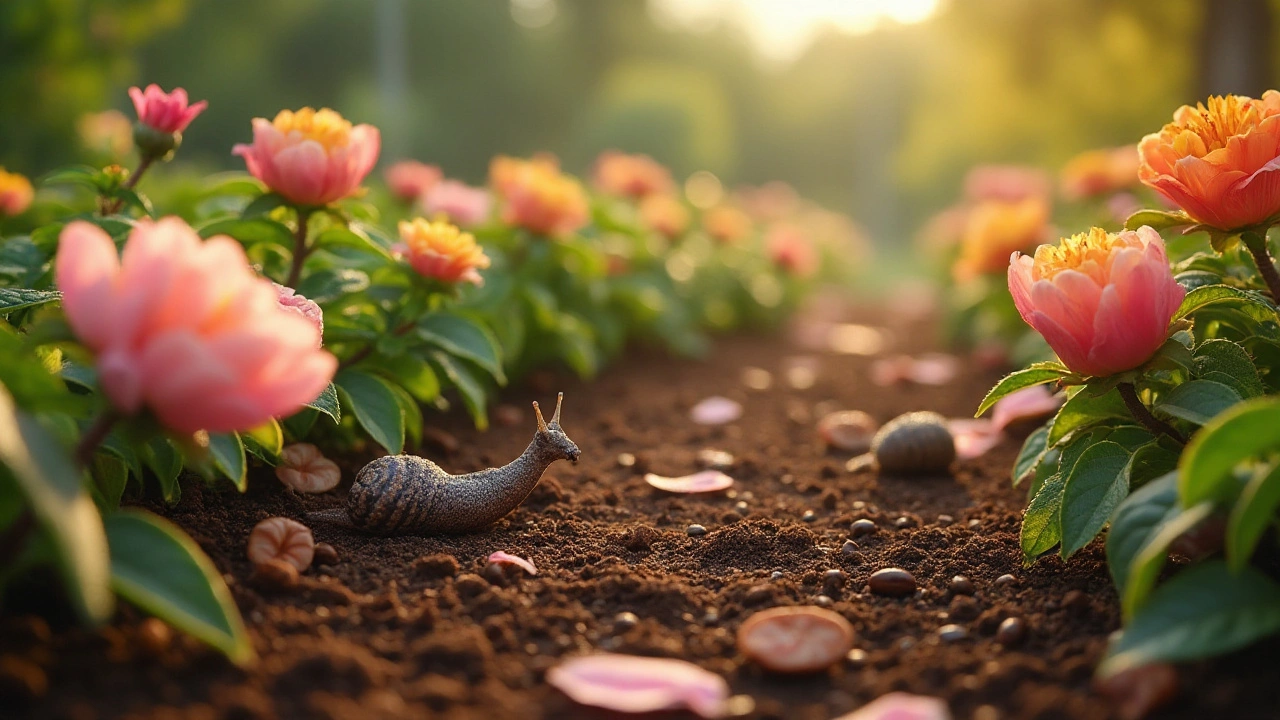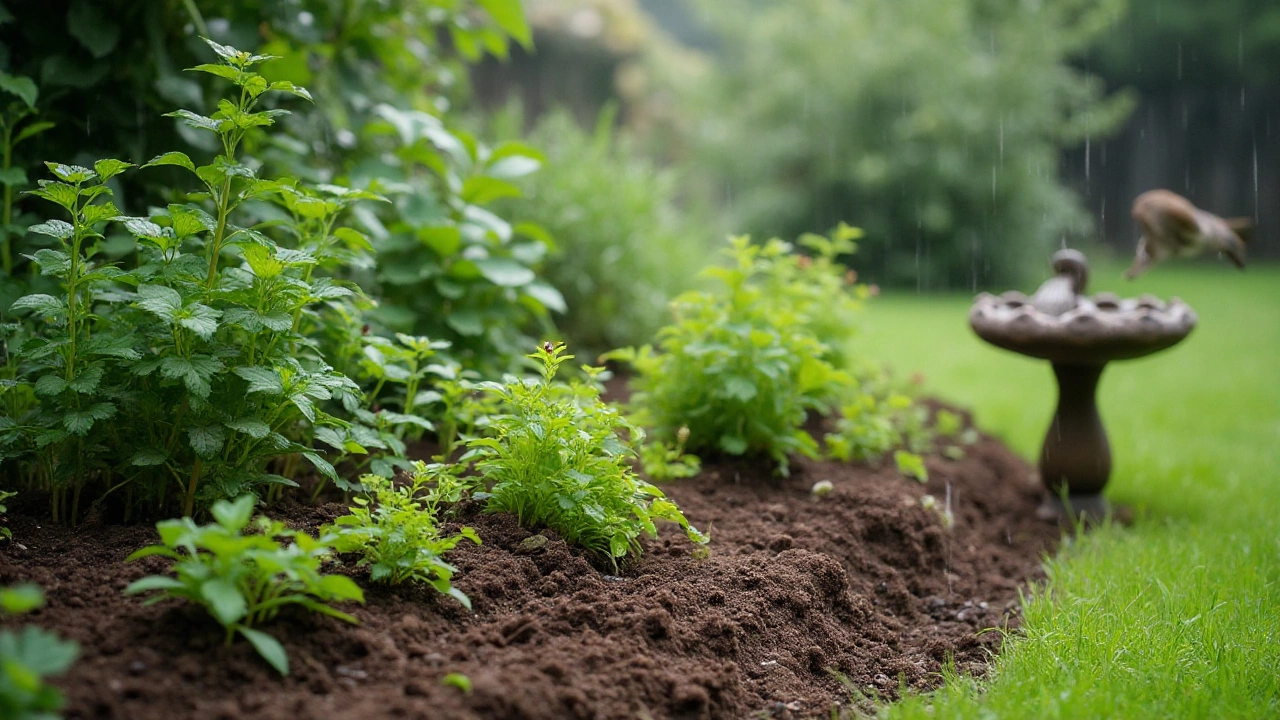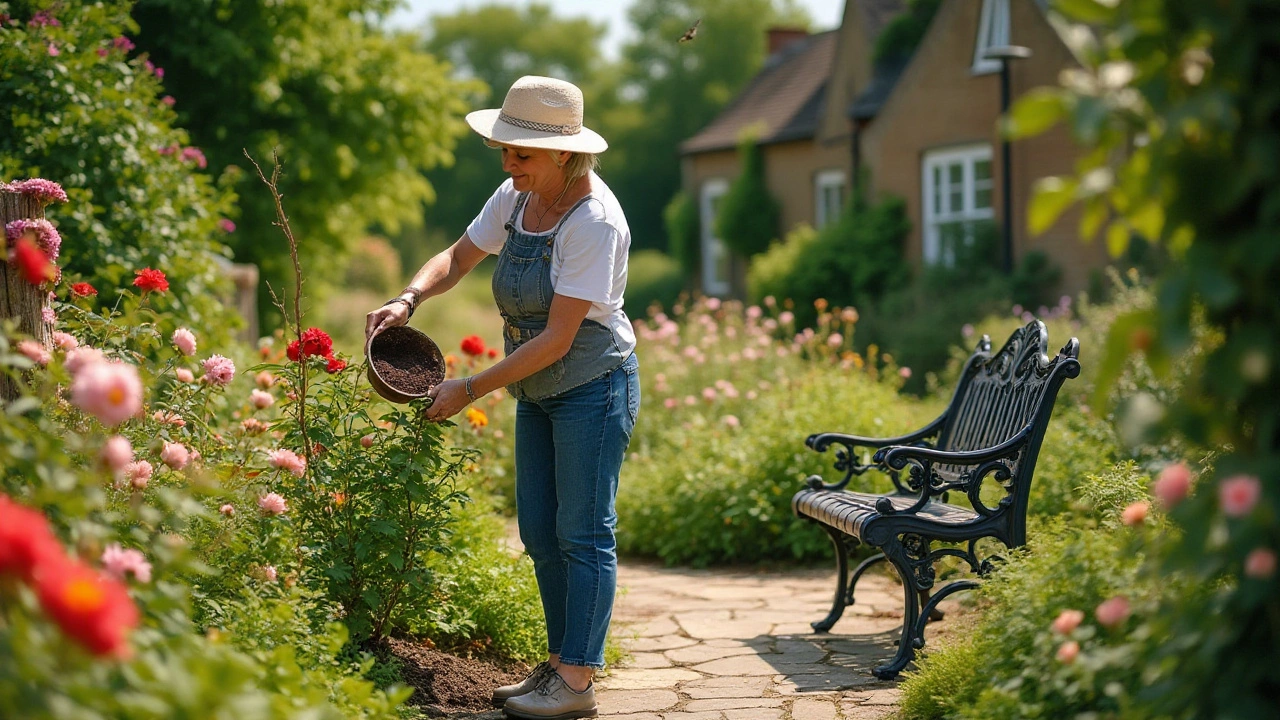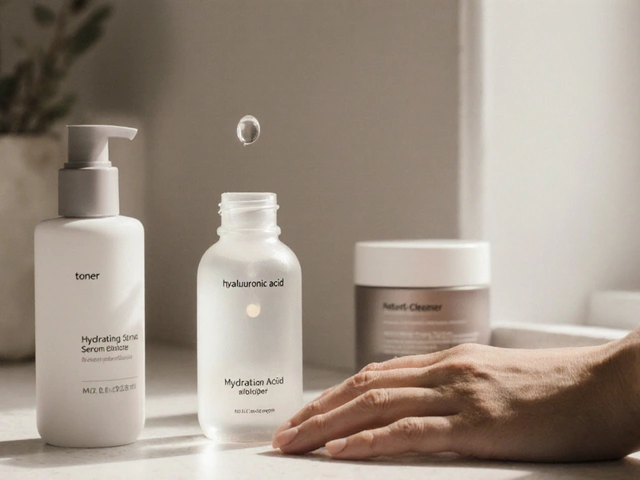If you're a coffee lover, you might be interested to know that your morning ritual could also benefit your garden. Many gardeners have discovered that coffee grounds can serve more purposes than simply providing that caffeine kick in the morning. But does it really help your plants grow, or is it just a gardening myth?
In this article, we'll dive into the world of coffee grounds and their effect on plant growth. We'll unravel the science behind these humble remnants of your daily brew and provide practical tips on incorporating them into your gardening routine. Whether you're a green thumb or just starting, keeping these tips in mind can help you turn spent coffee grounds into garden gold. Let's get into it!
- Benefits of Coffee Grounds for Plants
- How Coffee Grounds Affect Soil
- Using Coffee Grounds Safely
- Alternatives and Complementary Uses
Benefits of Coffee Grounds for Plants
Coffee grounds are more than just remnants of your morning brew; they can transform your garden into a thriving oasis of green. What's fascinating is that these tiny bits are packed with nutrients that can significantly enhance your soil. They contain essential elements such as nitrogen, potassium, and phosphorus, which are crucial for plant growth. Nitrogen is particularly important because it helps plants grow strong stems and healthy green leaves. When you add coffee grounds to your garden, you provide a natural boost that can give your plants an edge in their development.
Another important aspect of using coffee grounds is their ability to improve soil structure. Good soil structure is vital for keeping plants thriving, and when you mix coffee grounds into your garden, they help create a crumbly texture that improves aeration and drainage. This is important for water retention and ensuring that plant roots have access to the moisture they need without getting waterlogged. Coffee grounds can also increase soil acidity, which benefits particular plants like blueberries and roses, giving them the specific environment they need to flourish.
There are also benefits in terms of pest control. Slugs and snails, which are common garden nuisances, tend to avoid coffee grounds. While scientists are still puzzled over why exactly these pests dislike them, many home gardeners report a decrease in slug activity after spreading coffee grounds around their plants. It acts as a natural deterrent without the need for harmful chemicals, supporting more sustainable gardening practices.
"One study found that coffee grounds have a slight allelopathic effect, which means they can inhibit the growth of certain weed species," says gardening expert Dr. Rowena Jenkins, highlighting another surprising benefit.
In light of these advantages, it's no wonder coffee grounds have become the secret weapon for organic gardening enthusiasts. While used moderately, they can transform your approach to plant care. The trick is to spread them evenly and not clump them in piles that might mold. I find it helpful to pair coffee grounds with other compostable materials for a balanced mixture. This way, you ensure you're feeding the soil a variety of nutrients, helping every part of the garden ecosystem thrive. Whether you're just experimenting or looking for a more eco-friendly approach, integrating coffee grounds as part of your garden routine could be a game-changer.

How Coffee Grounds Affect Soil
Coffee grounds are more than just a morning delight; they can be a fantastic addition to your garden soil if used wisely. First and foremost, grounds are known for their rich organic matter, which can significantly improve the structure of your soil. This means better aeration and drainage, which are essential for healthy plant growth. The addition of coffee grounds can create space for roots to expand, helping plants to anchor themselves firmly. It's this very characteristic that makes coffee grounds a favorite among gardeners aiming for lush, thriving gardens.
Besides enriching soil structure, coffee grounds can be a boon for enhancing soil fertility. When grounds decompose, they release nitrogen—a critical nutrient required for healthy plant development. This gradual release means plants have a consistent supply of nutrients rather than a sudden surge, which can be harmful. The nitrogen content in coffee grounds encourages lush foliage, helping plants maintain their vibrant green color.
According to the Sunset Magazine garden expert, coffee grounds offer a slow-release boost to your plants, providing nutrients gradually over time rather than in sudden bursts.
Interestingly, coffee grounds can also play a pivotal role in regulating soil pH. Though they contain a small amount of caffeine, which is acidic, used coffee grounds typically end up with a neutral pH. As they break down, they act as a balancing element in your garden soil, rather than a disruptor. This is beneficial for most plants that prefer slightly acidic to neutral conditions. By incorporating garden grounds into your soil, you're crafting an environment where a variety of plants can flourish.
While they contribute positively in many aspects, there are a few caveats to be mindful of. It's crucial to avoid using too many grounds in one spot as this can lead to compaction, which hinders water infiltration and root growth. Instead, mix them thoroughly into the soil or with other organic materials like leaves or compost. By doing this, coffee grounds will function as a soil conditioner, aiding in water retention while preventing soil erosion during heavy rains. Using grounds as part of a balanced compost pile ensures you don’t overload your garden with any single nutrient.
Finally, coffee grounds help foster a beneficial environment for earthworms, which are nature's tiny tillers. These little creatures adore the organic material that grounds provide, leading them to dig through the soil, which helps break down organic materials more quickly. In turn, this boosts nutrient cycling, making more nutrients available to your plants at a faster rate. Ultimately, adding used coffee grounds to your garden could be the eco-friendly boost your plants need to thrive.

Using Coffee Grounds Safely
When it comes to incorporating coffee grounds into your garden, it's crucial to do so with a little thought and planning. Though these grounds offer numerous benefits, improper use can lead to problems rather than solutions. Let's explore how to utilize coffee grounds effectively to foster healthy plant growth without unintended side effects. It's fascinating to note that coffee grounds are rich in nitrogen, an essential nutrient for plants. However, their high acidity content is often a concern. Therefore, it's important to know what plants are suitable for coffee ground application. Acid-loving plants like azaleas, blueberries, and tomatoes thrive with coffee's acidity, but beware of overuse, which might lead to soil pH imbalance.
One of the smartest practices is using coffee grounds in moderation. Start by adding a small amount and observe how your garden responds. Organic gardening enthusiasts often recommend blending coffee grounds with other organic matter like compost before application. This reduces the risk of harmful acidity levels and enhances the overall nutrient profile. Another effective way to use coffee grounds is as a mulch or top dressing. A thin layer of coffee grounds can enhance soil structure, boost moisture retention, and create a barrier for pesky weeds. However, thick layers should be avoided, as they might create a water-repelling crust, potentially suffocating plants beneath them.
Tips for Safe Use
For those who worry about pests, coffee grounds are known to deter certain garden intruders naturally. The grounds create an unfriendly environment for slugs and snails due to the gritty texture and coffee's caffeine content. An interesting tip is using grounds along with eggshells to double down on pest prevention while also enriching the soil with calcium. It's like a dynamic duo for your garden's protection. Always remember to rinse used grounds to reduce caffeine content if residue levels are a concern, especially around pets or caffeine-sensitive plants. When asked about gardening with coffee, Danny Lipford, a home improvement expert, once remarked,
"Coffee grounds can be a gardener's hidden gem, balancing nutrient needs and keeping pests at bay without the need for harsh chemicals."His insights remind us of the natural versatility these grounds offer.
For an added nutritional boost, use your coffee grounds in a compost bin. Decomposing coffee grounds enrich the compost, turning kitchen waste into rich garden food. As they break down, they release nutrients slowly, offering a gentle and sustained feed for your plants. This method is particularly beneficial for those who like to recycle kitchen waste, as it reduces waste and creates a sustainable gardening cycle. Don't forget the important step of creating a balanced mix by combining household greens, like vegetable scraps, with carbon-rich browns, like dried leaves. Whether through composting or direct application, remember that your patch of green is unique, so adjustments might be needed based on environmental factors and specific plant needs.

Alternatives and Complementary Uses
While using coffee grounds for your garden provides numerous benefits, it is interesting to know that there are other materials that can complement or substitute for coffee grounds. For instance, wood ash and leaf mold are incredible soil enhancers. Wood ash from untreated wood contains potassium, one of the key nutrients for plant growth, though it should be used sparingly due to its alkaline nature. Meanwhile, leaf mold acts as a fantastic humus provider, improving soil structure and water retention. But be patient with leaf mold since it typically takes a year or two to fully decompose. This waiting period can test your patience but the end result, a rich, crumbly compost, is well worth it.
"The garden suggests there might be a place where we can meet nature halfway." - Michael Pollan
For those looking into more immediate solutions, banana peels make a great alternative. Bursting with potassium, banana peels break down quickly and can be directly buried in the soil around plants. Or perhaps you'd prefer making a banana peel tea, soaking them in water for a couple of days before watering your plants with it. This liquid fertilizer provides a quick nutrient boost, particularly useful for flowering and fruiting plants. But if bananas aren’t your thing, then eggshells might be. Packed with calcium, crushed eggshells can help deter pests like slugs and snails while also contributing to soil health. Over time, the sharp edges will blunt, but the slowly releasing calcium remains beneficial long after.
Moreover, you can pair coffee grounds with worm composting. Worms absolutely love coffee and the natural grit in the grounds aids their digestive processes, enhancing their vermicompost. If you're new to vermicomposting, getting a simple setup can be both fascinating and rewarding. Conversely, if you absolutely don't like the idea of using worms, that's okay too. The grounds can simply be added to your regular compost pile. It's important to always mix coffee grounds with dry brown materials like leaves or straw before composting to prevent clumping and unpleasant smells. Balancing greens and browns keeps compost heaps productive and odor-free. Lastly, for those interested in decorative or functional outdoor uses, coffee grounds can also be used as a natural dye for fabrics. Mixed with a bit of water, grounds can give linens a warm sepia tint, perfect for that rustic look.






